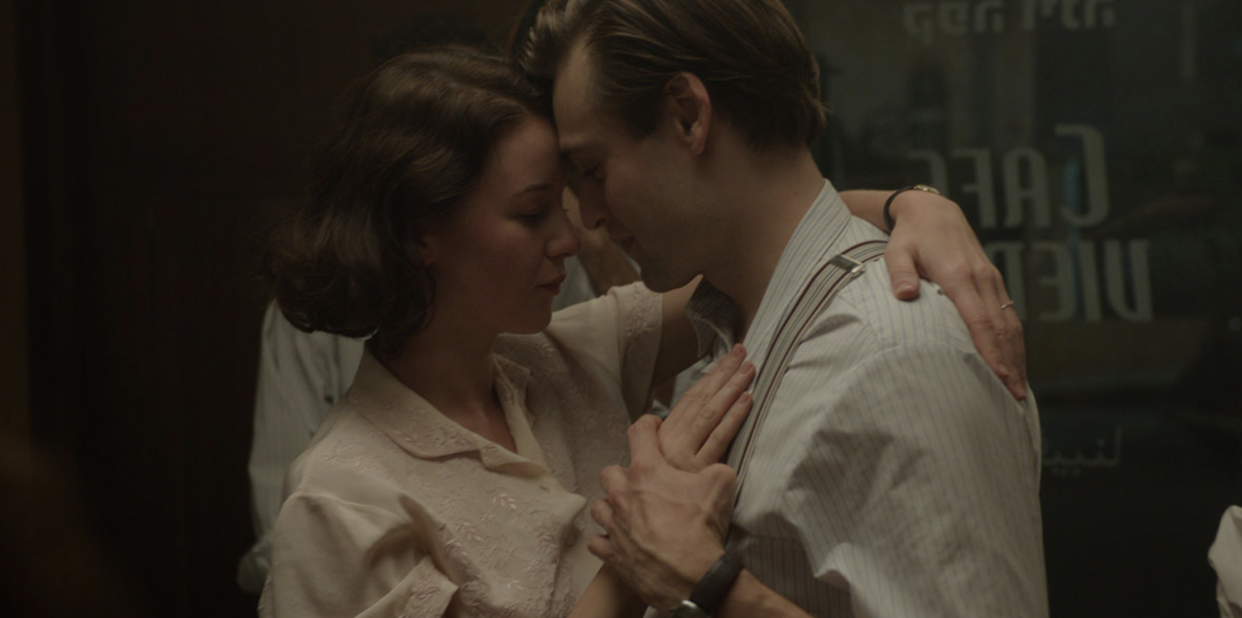‘Shoshana’ Review: Michael Winterbottom Rejects Extremism in His Anti-Colonial Political Thriller

Scripted films about political revolutions often have the luxury of marinating in esoteric debates about philosophies and forms of government that are completely detached from reality. If a filmmaker’s mission is to advance one ideology over another, it’s easy to abandon real-world nuance and cast their preferred parties as underdogs in a Hollywood-style good vs. evil saga. Michael Winterbottom’s “Shoshana” takes a different approach, immediately demonstrating its understanding that even the most intellectually committed activists have to consider dubious alliances to avoid total annihilation.
The British director’s new political thriller is set in Tel Aviv in the 1930s, during Britain’s occupation of Palestine that saw the military try to find a peaceful compromise between Palestinian natives and Zionists trying to establish Israel on their faith’s holiest grounds. Locals are forced to choose between supporting an unwanted occupation from an imperialist nation or violent nationalist rebels who support Israeli independence despite their regressive views and penchant for bombings.
More from IndieWire
The murky landscape forms the backdrop for a romance between Thomas Wilkin (Douglas Booth), a British officer whose years of living in Palestine have afforded him a more nuanced understanding of local politics than his jingoistic contemporaries; and Shoshana Borochov (Irina Starshenbaum), a feminist whose father spent his life fighting to build Israel into a modern nation. Both are educated, reasonable people who seek a compromise that brings Israel into the 20th century without genocide.
Their moderate views are unpopular, to say the least. Shoshana’s opposition to Britain’s ongoing presence in Palestine forces her to form an uneasy detente with Avraham Stern (Aury Alby), a charismatic poet and revolutionary leader who loves to throw bombs (of both the literary and explosive varieties) in his quest to eradicate Israel’s opponents through violence. Stern’s outspoken views and reckless disdain for caution make him the target of increased scrutiny from British intelligence.
The nation’s obsession with bringing Stern down causes Thomas’ superiors to question his relationship with Shoshana. Despite making every effort to see each other as three-dimensional people and build a relationship that ignores their minor differences, the two humanists are forced to consider the possibility that their connection isn’t strong enough to resist the forces of war. Love might be the thing that makes everyday life tolerable, but history only remembers winners and losers.
The painful lesson that both the British occupying forces and the Zionist revolutionaries are destined to learn is that cynicism is unsustainable. Any reasonably intelligent person can formulate an academic argument for why it’s acceptable to briefly suspend one’s morals and use violent tactics for a good cause. Police can claim that law and order is a sufficient societal good to justify the violation of a few individuals’ rights, while revolutionaries can spout platitudes about violence being the only voice of the unheard in a broken system. But while both takes might be correct in a narrow context that omits inconvenient information, they miss the fact that our sense of self is ultimately shaped by our actions. The process of committing acts of violence, even strategic ones, ultimately turns us into violent people. Winterbottom takes every opportunity to show us how making exceptions to our principles in extreme circumstances eventually gives way to the abandonment of those principles.
“Shoshana” begins as a sprawling tableau of Britain’s occupation of Palestine, introducing us to an array of soldiers, rebels, poets, bombers, policemen, moguls, and political figures. For the first hour or so, it seems like a confusing choice to name the film after a single character. But Winterbottom gradually narrows his focus to the relationship between Tom and Shoshana before eventually shining the sole spotlight on his eponymous tragic heroine. Shoshana never feels the lust for blood that animates so many of her contemporaries, but she’s still forced to watch the ensuing violence from a front row seat until she becomes a shell of her former self. The utter dereliction of her soul that Winterbottom forces us to watch for two hours is the most convincing evidence for his film’s defining idea: the nationalistic and idealogical disputes that make us hate each other come at a price that nobody can afford.
Grade: B+
“Shoshana” premiered at the 2023 Toronto International Film Festival. It is currently seeking U.S. distribution.
Best of IndieWire
Sign up for Indiewire's Newsletter. For the latest news, follow us on Facebook, Twitter, and Instagram.

